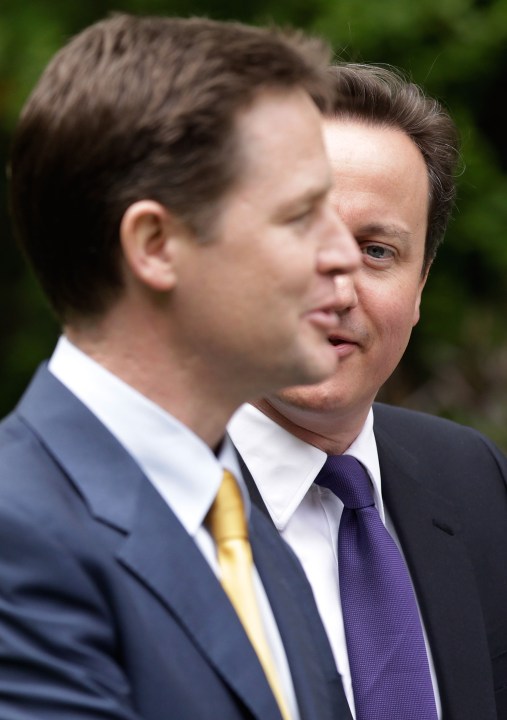 First, a little bit of history: as recently as last Christmas, I was a member of the
Liberal Democrats. I can’t remember why I joined them, and I can’t remember why I left – which strongly implies that I put very little thought into either – but that’s a story for
another time.
First, a little bit of history: as recently as last Christmas, I was a member of the
Liberal Democrats. I can’t remember why I joined them, and I can’t remember why I left – which strongly implies that I put very little thought into either – but that’s a story for
another time.
As a member, I was part of a group within the party that wanted to pull it in a more classically liberal direction: a smaller state, lower taxes and greater personal freedom. The idea of a party committed to greater personal freedom, but not greater economic freedom, always struck me as equal parts ridiculous and confused. If the Lib Dems exist to find a balance between liberty and equality, we thought we needed to prove that the correct balance was 100 percent liberty.
We were loathed for it, too, not least of which because we made the Orange Book MPs look positively mainstream and centrist by comparison. We sometimes called ourselves “Team Evil”, gleefully embracing out reputation with the socialists at the opposite end of the party. But these hostile left-wingers were, much to my own surprise, the exception rather than the rule. The majority of activists and members I knew were disconcertingly nice; suspiciously nice. I called it the Hug of Death – and I can’t help feeling the Tory leadership has fallen victim to it too.
If Labour is fond of destroying its enemies as fast as possible, the Liberal Democrats take the opposite approach – they wrap you with love and kindness until you’re robbed of the heart to fight them properly. Perhaps this, above all, explains why the coalition negotiations produced such a remarkable series of concessions from the Conservatives: a tax-free threshold of £10,000, no further repatriation of powers from Europe, the retention of the Human Rights Act, etc. It may sound far-fetched to suggest that the Lib Dem’s inoffensive charm lies behind all that – but, having experienced it at first hand, I’m not so sure.
Perhaps, though, the ends justify the soft and cuddly means. After all, the coalition has produced a government that seems more ideal than a Conservative majority or, heaven help us, a Lib Dem or Labour majority. But what about my original plan for reforming the Lib Dems? Sure, if you get enough classical liberals to join up, and vote on policy, that change may come. But, after seeing what the party has done to Dave, you might not want to take the risk. They may, in fact, change you.
Charlotte Gore blogs at http://charlottegore.com/







Comments